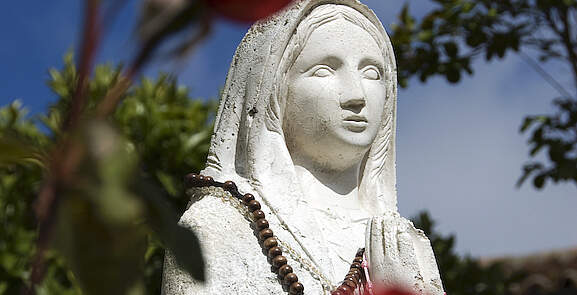
In the sixth chapter of St Mark’s Gospel, we find the account of Jesus sending out the Twelve, two by two, on mission. The first thing he gave them, Mark tells us, was “authority over unclean spirits.” And the first pastoral act that they performed was to “drive out many demons.”
When I was coming of age in the ‘60s and ‘70s, it was common, even in seminaries, to dismiss such talk as primitive superstition—or perhaps to modernize it and make it a literary device, using symbolic language evocative of the struggle with evil in the abstract. But the problem with that approach is that it just does not do justice to the Bible. The biblical authors knew all about “evil” in both its personal and institutional expressions, but they also knew about a level of spiritual dysfunction that lies underneath both of those more ordinary dimensions. They knew about the world of fallen or morally compromised spirits. Jesus indeed battled sin in individual hearts as well as the sin that dwelt in institutional structures, but he also struggled with a dark power more fundamental and more dangerous than those.
What, or better, who is this threatening spiritual force? It is a devil, a fallen or morally compromised angel. Imagine a truly wicked person who is also very smart, very talented and very enterprising. Now raise that person to a far higher pitch of ontological perfection, and you will have some idea of what a devil is like.
Jesus has entrusted to his Church the means to apply this victory, the weapons, if you will, to win the spiritual warfare. These are the sacraments (especially the Eucharist and Confession), the Mass, the Bible, personal prayer, the rosary, etc. Jesus sent out the Twelve to battle dark spirits. He still empowers his church to do the same. Don’t be reluctant to use the weapons—and the healing balms—that he has given.
Bishop Robert Barron
July 25, 2012
Adapted from Word on Fire